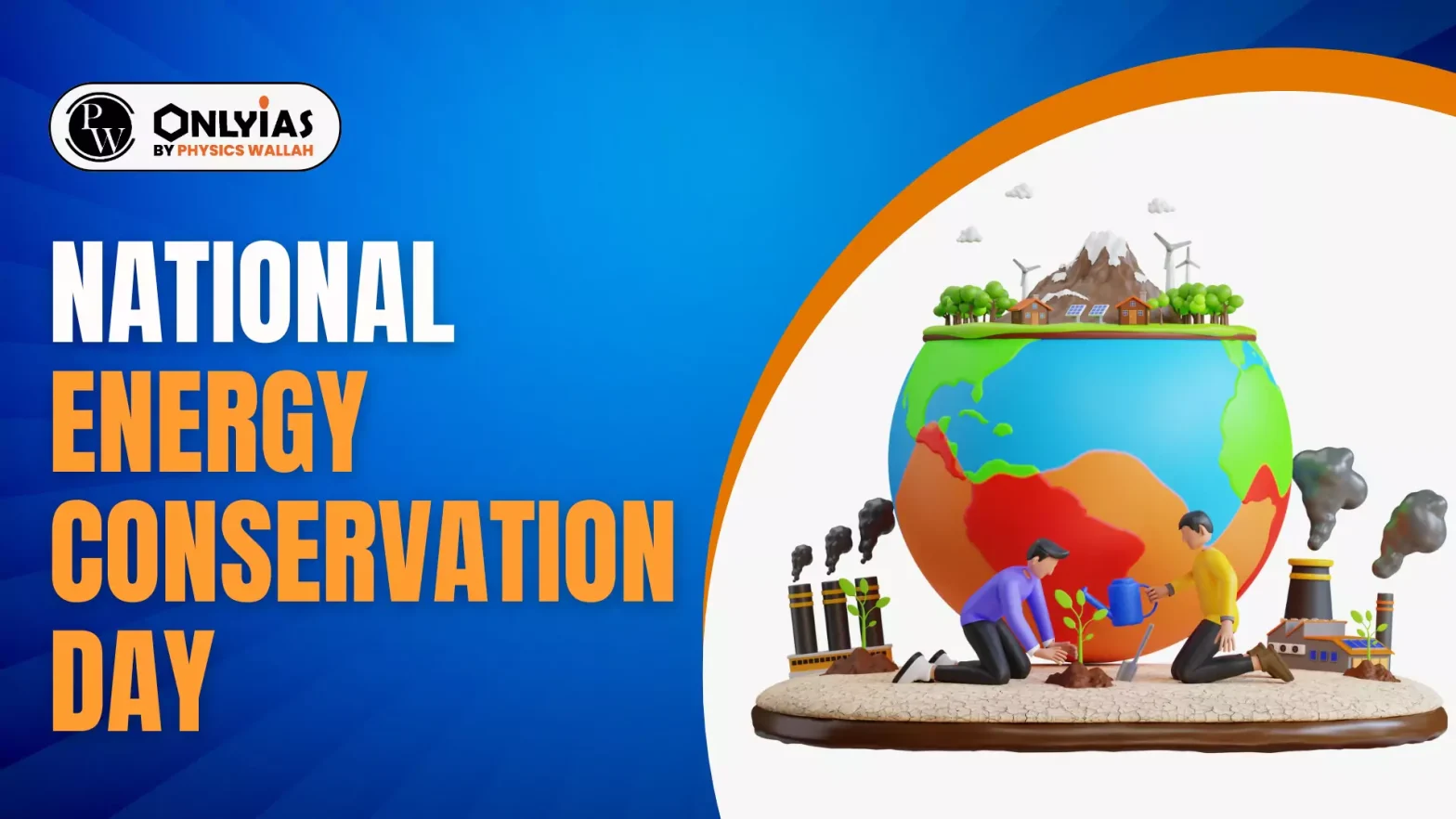National Energy Conservation Day 2024 will be observed on December 14, 2024. Learn more about National Energy Conservation Day, theme, and significance.

National Energy Conservation Day 2024 is celebrated on December 14 every year in India. It aims to raise awareness about energy conservation, efficient energy use, and the importance of adopting sustainable practices to reduce energy wastage. This day highlights India’s commitment to promoting a greener future and achieving energy security. The celebration is spearheaded by the Bureau of Energy Efficiency (BEE), which operates under the Ministry of Power, Government of India.
Several initiatives, awards, and awareness drives are conducted on this day to encourage individuals, businesses, and organizations to adopt energy-efficient practices.
The day aims to encourage individuals, industries, and government bodies to adopt energy-saving techniques to reduce wastage and ensure a greener, more energy-secure future. The Bureau of Energy Efficiency (BEE), under the Ministry of Power, leads the celebration of this day through awareness campaigns, award ceremonies, and initiatives to highlight the importance of energy conservation at both individual and organizational levels. Below is a highlight table on National Energy Conservation Day:
| Key Aspects | Details |
| Observed On | December 14 (Every Year) |
| First Observed | 1991 |
| Organizing Body | Bureau of Energy Efficiency (BEE), Ministry of Power |
| Objective | Promote energy conservation and sustainable practices |
| 2024 Theme | “Powering Sustainability: Every Watt Counts” |
| Significance | Spreads awareness on energy efficiency, promotes sustainable energy use, and supports India’s goal of achieving energy security |
| Activities Conducted | Awareness drives, campaigns, seminars, and distribution of National Energy Conservation Awards |
| National Energy Conservation Award | Recognizes individuals, institutions, and organizations for exceptional contributions to energy conservation |
The theme for National Energy Conservation Day 2024 is “Powering Sustainability: Every Watt Counts.” This theme emphasizes the critical role of small, collective efforts in energy conservation. It aims to inspire individuals, industries, and governments to adopt sustainable energy practices and contribute to a greener, more energy-efficient future.
The day is observed to foster a culture of responsible energy consumption and promote sustainable energy practices. It aims to make people aware of the rising energy demands and encourages them to shift towards energy-saving techniques. Here is the Significance of National Energy Conservation Day:
The first National Energy Conservation Day was celebrated on December 14, 1991, under the supervision of the Bureau of Energy Efficiency (BEE). BEE was established in 2001 as part of the Energy Conservation Act, of 2001. Since then, the day has been observed every year to recognize the need for energy conservation, reduce energy wastage, and promote energy-efficient practices in every sector.
The Bureau of Energy Efficiency (BEE) is a statutory body under the Ministry of Power, Government of India, established under the Energy Conservation Act, of 2001. The primary objective of BEE is to promote energy efficiency and conservation measures. It develops policies, sets energy performance standards, and conducts energy audits to encourage the use of energy-efficient products and practices in industries, businesses, and households.
Key Roles of BEE:
The National Energy Conservation Awards are presented by the Bureau of Energy Efficiency (BEE) to recognize industries, businesses, and organizations that have demonstrated outstanding achievements in energy conservation. These awards highlight best practices and motivate others to adopt similar energy-efficient techniques.
Key Highlights of National Energy Conservation Awards 2024
Ready to boost your UPSC 2025 preparation? Join PW’s UPSC online courses today!
National Energy Conservation Day is celebrated on December 14 each year to promote awareness about energy conservation and the need for sustainable energy practices.
The theme for National Energy Conservation Day 2024 will be announced by the Bureau of Energy Efficiency (BEE) closer to the celebration date.
The Bureau of Energy Efficiency (BEE), under the Ministry of Power, Government of India, organizes the National Energy Conservation Day.
The first National Energy Conservation Day was observed on December 14, 1991.
Industries, educational institutions, commercial buildings, and other sectors that demonstrate excellence in energy conservation are eligible for the National Energy Conservation Award 2024.
The winners of the National Energy Conservation Award 2024 will be announced during the official ceremony on December 14, 2024.

<div class="new-fform">
</div>